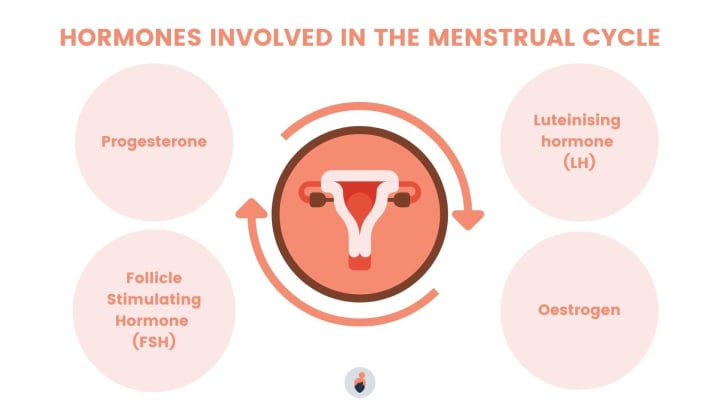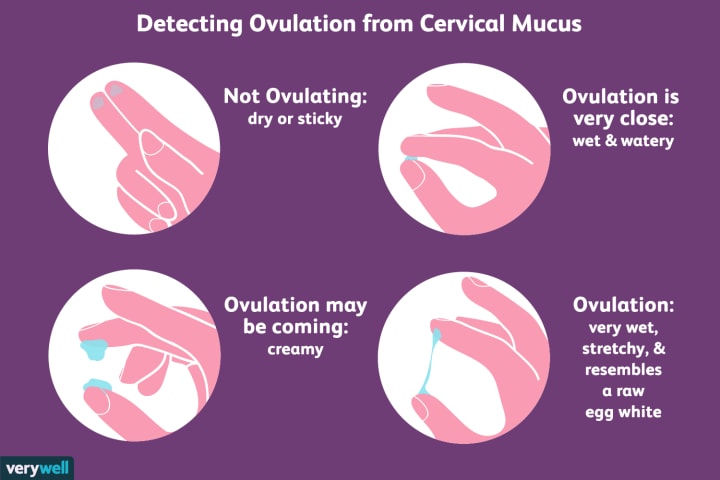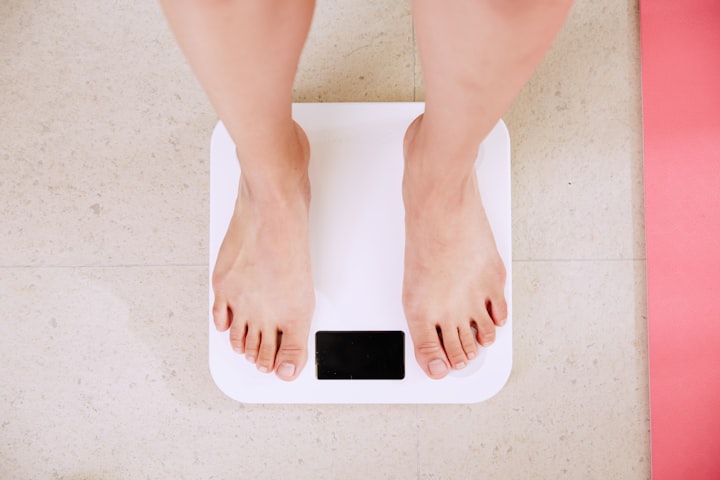Navigating the Menstrual Cycle: Common Questions and Answers
Questions and Answers

1. Introduction
Introduce the topic of the menstrual cycle and why it's important to understand it.
The menstrual cycle is a natural process that occurs in the female body on a monthly basis. It is closely tied to the reproductive system and is responsible for preparing the body for pregnancy. Understanding the menstrual cycle is important for managing reproductive health and fertility, as well as for understanding and addressing any issues or concerns that may arise during the cycle. It also helps in understanding and tracking the fertility window, and planning pregnancies. Additionally, understanding the menstrual cycle can also help women to manage symptoms such as cramps, bloating, and mood swings that may occur during the cycle.
Briefly mention some common questions and misconceptions about the menstrual cycle.
How long should a menstrual cycle last? The average menstrual cycle lasts between 3 to 7 days, but it can vary from person to person.
The average menstrual cycle lasts between 3 to 7 days, but it can vary from person to person and it's considered normal for the menstrual cycle to last anywhere from 2 to 7 days. It's also important to note that menstrual cycles can vary in length from month to month for some women. A cycle that varies by a day or two is usually considered normal, but if the cycle varies by more than a week, it's best to consult a healthcare provider to rule out any underlying issues.
Can you get pregnant during your period? It is possible to get pregnant during your period, especially if you have a shorter menstrual cycle and ovulate early.
It is possible to get pregnant during your period, although it is less likely than during other times of the menstrual cycle. Sperm can survive inside the female body for up to five days, and it is possible for a woman to ovulate early in her cycle before her period has ended. If a woman has intercourse near the time of ovulation and the sperm survive, there is a chance that the egg could be fertilized, resulting in pregnancy. So, it's important to use contraception, if you are trying to avoid pregnancy.
Does having sex during your period make it shorter? Having sex during your period will not make it shorter, but it can make it heavier or more painful.
Having sex during your period will not make it shorter. The length of your menstrual cycle is determined by the hormonal changes that occur in your body, and intercourse will not affect these changes. However, having sex during your period can cause the blood flow to increase, making your period heavier or more painful. This is because during intercourse the cervix is more open, therefore it's easier for menstrual blood to flow out. Additionally, some women may experience cramping or discomfort during intercourse while on their periods, which can contribute to a more painful experience.
Can you have a period without ovulating? Yes, it is possible to have a period without ovulating, especially if you are on certain types of birth control.
Yes, it is possible to have a period without ovulating. This is known as an anovulatory cycle, which occurs when the ovaries do not release an egg. It can happen due to hormonal imbalances, stress or other health conditions. Women who are on certain types of hormonal birth control, such as the birth control pill, may also have anovulatory cycles because the hormones in the pill prevent ovulation. It is important to note that anovulatory cycles can also be a symptom of certain health conditions and it is advisable to consult a healthcare professional if you suspect this is the case for you.
Is it normal to have cramps or bloating during your period? Cramps and bloating are common symptoms of the menstrual cycle, but the severity can vary from person to person.
Yes, it is normal to experience cramps or bloating during your period. These symptoms are caused by the hormonal changes that occur during the menstrual cycle and the contraction of the uterus as it sheds its lining. The severity of cramps and bloating can vary greatly from person to person, and some women may not experience these symptoms at all. If the symptoms are severe or persistent, it is recommended to consult with a healthcare provider.
Does having a heavy period mean there is something wrong? Not necessarily, some women naturally have heavier periods.
Having a heavy period does not necessarily mean there is something wrong. Some women naturally have heavier periods due to their individual hormonal fluctuations and menstrual cycle. However, in some cases, a heavy period may be a symptom of an underlying condition such as fibroids, endometriosis, thyroid disorder, or a side effect of certain medications. If you have heavy bleeding that interferes with your daily activities, or if you experience other symptoms such as cramps or bloating, it is recommended to consult with a healthcare provider for further evaluation.
Are menstrual cycle and periods the same thing? The Menstrual cycle refers to the changes that happen in a woman's body in a month, from the first day of the period to the first day of the next period, whereas periods refer to the bleeding that occurs as a part of the menstrual cycle.
Yes, the menstrual cycle and period are related but they are not the same thing. The menstrual cycle refers to the series of changes that occur in a woman's body in a month, from the first day of one period to the first day of the next period. The menstrual cycle is controlled by hormones and is responsible for the growth and shedding of the lining of the uterus.
Periods, on the other hand, refer specifically to the bleeding that occurs as part of the menstrual cycle. During a period, the lining of the uterus is shed through the vagina. The bleeding usually lasts for about 3-7 days and can vary in terms of flow and symptoms. The menstrual cycle and periods are closely related and happen together, but they are not the same thing.
2. What is the menstrual cycle?
Define the menstrual cycle and its function in the reproductive system.
The menstrual cycle is the series of changes that occur in a woman's body on a monthly basis as part of the reproductive system. The cycle is controlled by a complex interplay of hormones and is responsible for preparing the body for pregnancy. The menstrual cycle is divided into two phases: the follicular phase and the luteal phase.
During the follicular phase, which begins on the first day of menstruation, the lining of the uterus is shed, and the body starts preparing for a potential pregnancy. The ovaries start to produce estrogen, which causes the lining of the uterus to thicken in preparation for a fertilized egg.
Ovulation occurs in the middle of the cycle when the ovaries release a mature egg. The egg travels down the fallopian tube where it may or may not be fertilized by sperm.
If the egg is not fertilized, the luteal phase begins. During this phase, the hormone progesterone is produced and it causes the uterus to further thicken in preparation for a fertilized egg. If pregnancy doesn't occur, the thickened lining of the uterus is shed, resulting in menstruation and the cycle starts again.
In summary, the menstrual cycle is a complex process that prepares the female body for pregnancy, through changes in the uterus and ovaries, controlled by hormones. If pregnancy doesn't occur, the cycle starts again.
Explain the different hormones involved in the menstrual cycle.
The menstrual cycle is controlled by a complex interplay of hormones, which includes:
Follicle-stimulating hormone (FSH): This hormone is produced by the pituitary gland and stimulates the growth of follicles in the ovaries, which contain immature eggs.

Luteinizing hormone (LH): This hormone is also produced by the pituitary gland and triggers ovulation, the release of a mature egg from the ovary.
Estrogen: This hormone is produced by the ovaries and stimulates the growth and thickening of the lining of the uterus.
Progesterone: This hormone is produced by the ovaries after ovulation and helps to maintain the thickened lining of the uterus in preparation for a fertilized egg.
All these hormones work together to regulate the menstrual cycle and prepare the body for pregnancy. The levels of these hormones fluctuate throughout the menstrual cycle, with estrogen levels rising during the first half of the cycle and progesterone levels rising during the second half of the cycle.
It's important to note that any imbalance or dysfunction in these hormones can result in irregular menstrual cycles or other issues such as infertility, and it's advisable to consult with a healthcare provider if you notice any changes in your menstrual cycle or have concerns about your reproductive health.
3. Understanding Ovulation
Explain the process of ovulation and when it typically occurs in the menstrual cycle.
Ovulation is the process in which a mature egg is released from the ovary and made available for fertilization. It is a critical step in the menstrual cycle and is necessary for pregnancy to occur.
The process of ovulation starts with the release of follicle-stimulating hormone (FSH) from the pituitary gland, which stimulates the growth of several immature eggs in the ovaries. As the eggs mature, one of them will become dominant, and the others will be reabsorbed by the body.
As the dominant egg matures, the ovary also produces increasing amounts of estrogen. This increase in estrogen triggers the release of luteinizing hormone (LH) from the pituitary gland, which causes the dominant egg to be released from the ovary. This process is called ovulation.
Ovulation typically occurs around day 14 of a 28-day menstrual cycle, but it can vary from woman to woman. Some women may ovulate earlier or later in their cycle, and others may have irregular cycles, making it difficult to predict when ovulation will occur.
It's important to note that ovulation and menstruation are not the same things. Ovulation is the release of an egg from the ovary and menstruation is the shedding of the lining of the uterus. Ovulation occurs during the menstrual cycle and it is necessary for pregnancy to happen, but menstruation can happen regardless of ovulation.
Discuss the signs of ovulation and how to track it.
There are several signs that can indicate ovulation is occurring, and tracking these signs can help women understand their menstrual cycle and predict when they are most likely to conceive.
Some common signs of ovulation include:
Basal body temperature (BBT) changes: A woman's BBT will typically rise slightly after ovulation, and tracking this temperature change can be used as an indicator of ovulation.
Cervical mucus changes: Before ovulation, cervical mucus is typically dry or sticky, but as ovulation approaches, it becomes more wet and slippery. This is due to an increase in estrogen that causes the cervical mucus to become more stretchy and transparent, which helps sperm to survive and reach the egg.
Ovulation pain: Some women may experience mild pain or twinge on one side of the lower abdomen, which is known as Mittelschmerz. This pain is caused by the egg being released from the ovary and can be a sign of ovulation.
Increased libido: Ovulation can increase a woman's sex drive due to hormonal changes that occur in the body.
Tracking ovulation can be done by using ovulation prediction kits, which detect the luteinizing hormone (LH) in urine that increases right before ovulation. Additionally, charting basal body temperature and cervical mucus changes can be useful in identifying patterns and predicting ovulation.

It's important to note that while these signs can be helpful in predicting ovulation, they are not always reliable, and some women may not experience any clear signs of ovulation. Consulting with a healthcare provider can be helpful to understand your menstrual cycle and fertility status.
Mention the role of ovulation in fertility and pregnancy.
Ovulation plays a critical role in fertility and pregnancy. During ovulation, a mature egg is released from the ovary and travels down the fallopian tube, where it can be fertilized by sperm. If the egg is fertilized by a sperm, it will divide and begin to form a ball of cells called a zygote. The zygote will then travel down the fallopian tube and attach itself to the lining of the uterus, where it will begin to grow and develop into a fetus.
If fertilization does not occur, the egg will be absorbed by the body and the lining of the uterus will be shed during menstruation, marking the beginning of a new menstrual cycle.
Ovulation is necessary for pregnancy to occur, and a woman's fertility is closely tied to her menstrual cycle and ovulation. Understanding the menstrual cycle and ovulation is important for women who are trying to conceive, as well as those who wish to avoid pregnancy.
It's important to note that ovulation alone doesn't guarantee pregnancy, as many factors such as the quality of the egg and sperm, as well as the health of the uterus and fallopian tubes, can impact the chances of pregnancy. Consultation with a healthcare provider can be helpful to understand your fertility status and potential issues that may impact your ability to conceive.
About the Creator
Nisha Suman
Look at the sky. We are not alone. The whole universe is friendly to us and conspires only to give the best to those who dream and work.
A. P. J. Abdul Kalam






Comments
There are no comments for this story
Be the first to respond and start the conversation.